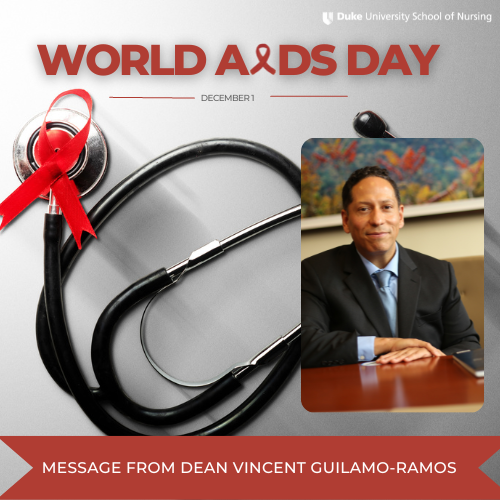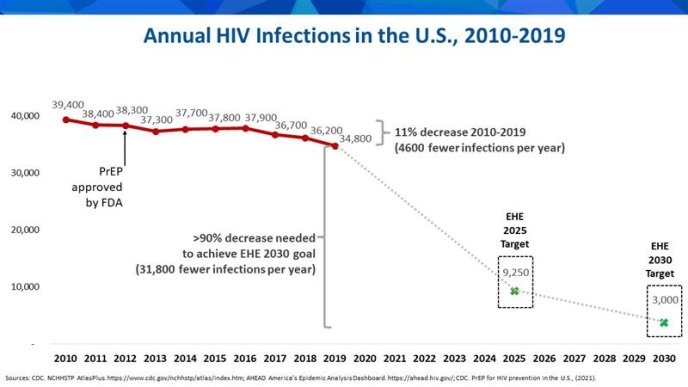World AIDS Day: Putting Ourselves to the Test: Achieving Equity to End HIV
World AIDS Day message from Dean Vincent Guilamo-Ramos

World AIDS Day takes place on December 1 and provides us with the opportunity to raise global awareness of HIV, address the needs of people living with HIV, and unite to end the HIV epidemic. The U.S. Government’s theme for World AIDS Day 2022 is Putting Ourselves to the Test: Achieving Equity to End HIV to call attention to the pronounced inequities in HIV prevention and treatment. Duke University’s School of Nursing is Putting Ourselves to the Test by focusing our recognition of World AIDS Day on addressing HIV stigma, which continues to be a key driver of HIV inequities and an important barrier to the equitable reach of HIV prevention and treatment—including and particularly for young people at risk of or living with HIV.

We have the tools and science to meet EHE goals, but we need to expand the reach of our delivery systems for HIV prevention and treatment. Gaps in delivery contribute to inequities in new infections among Latinos, African Americans, men who have sex with men (MSM), particularly between the ages of 25 and 34, people who use substances, and individuals residing in the South. For example, between 2010 and 2019, estimated annual new HIV infections among Latinos in the U.S. increased by 6 percent while decreasing overall.
HIV stigma and discrimination exacerbate these existing gaps by negatively impacting the physical and mental health of people living with HIV and decreasing engagement in care and adherence to treatment. Youth living with HIV are uniquely affected by HIV stigma as they develop and transition into healthy adulthood. My research has focused on the key role of families in shaping youths’ health behavior and outcomes, and for World AIDS Day we are launching our family-based HIV stigma intervention program NO FEARS (Nurturing Ourselves: Family Education and Activities to Reduce Stigma) to promote future health and life opportunities for the 3 million youth ages 15 to 24 living with HIV around the world.
This World AIDS Day, the DUSON community is Putting Ourselves to the Test to raise awareness of inequities in HIV prevention and treatment. In honor of World AIDS Day, we highlight the impactful work being done by our DUSON community members to overcome stigma and expand the scale, efficacy, and reach of HIV prevention and treatment. I am proud of our contributions to reducing HIV stigma, raising awareness, and ending the HIV epidemic.
Sincerely,
Vincent Guilamo-Ramos
Dean, Duke University School of Nursing
Vice Chancellor, Nursing Affairs, Duke University
